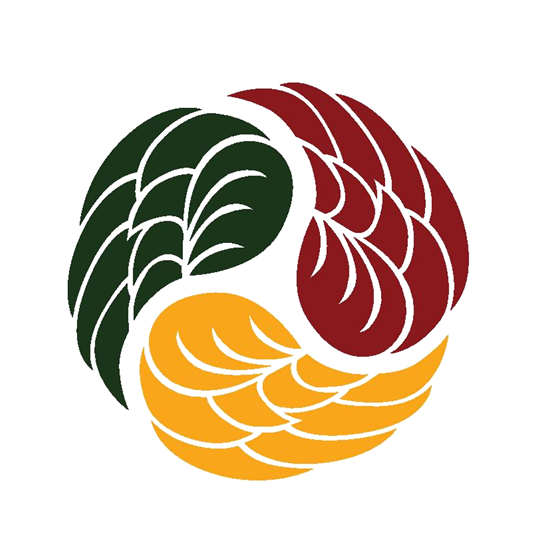Professionalism Isn’t Cultural or Generational, It’s Principle
“Every civilization depends on the quality of individuals it produces.” ― Frank Herbert
Sometimes, what we perceive as “unprofessional” actually makes more sense in context. In Frank Herbert’s science fiction classic Dune, there is a meeting between the local Freemen and the foreign administrators, hoping to come to an agreement to cooperate together, upon which the Freemen representative spits on the table. Taking it as an act of malice, several officers prepare to draw their weapons, before one of them, high-ranking officer Dunan Idaho, tells them to stand down and spits on the table himself. He explains then that this was not a sign of disrespect or malice, but a sign of deep trust because water is a very precious resource for the Freemen, so to voluntarily give up some of their own moisture in the form of spit was to make an irreplaceable sacrifice and show immense trust and respect.
While we aren’t advocating anyone to spit on tables when concluding meetings, we are hoping to convey that just because something is different doesn’t make it any less professional–it’s just that most professional norms are interpreted through the urban industrial societal lens. If you’re working in the field of development and nonprofit, then you really need to develop cultural competence, especially when working with people of all age groups since even within a country, its generations and its different cultural groups will express professionalism differently.
If the common definition of professionalism is the guiding principles that dictate the conduct, aims, and qualities that characterize a professional, then the key word is guiding principles. For example, in another country’s ecosystem, not only is it too hot to be wearing a heavy coat and tie, but the materials to make a good suit and tie are more expensive than the local dress style, which is considered professional like the Filipino Barong Tagalog as worn by government officials as an alternative to the typical western style. You’ll find more people in the corporate sector wearing western style suits and ties as opposed to government employees who have the option of wearing a Barong Tagalog.
Expanding on this, if dress code in certain climates is a sign of adapting to the local environment, then so too can the same guiding principles be adapted to a local environment appropriate to cultural norms while still maintaining a degree of professionalism. In a large number of East and Southeast Asian cultures, especially Japan, Cambodia, and Indonesia, you might find that work doesn’t end when it’s time to clock out, you’re expected to join in and socialize with after-hour drinks or karaoke in Japan, whereas in Cambodia and Indonesia, you’ll find people prefer to eat lunch as a group and find it uncomfortable when someone merely wants to go to the office and leave while making no effort to get to know his or her colleagues.
Time itself is a good measure of professionalism, and we don’t mean the German/Swiss love for punctuality on the minute compared to the more lax rules in places like South Africa or Colombia where being fifteen minutes late is still “roughly on time” and how in some Middle Eastern cultures, it’s rude to show up early as opposed to coming a little bit late. Some individuals might interpret coming on time or demanding someone show up on time as a form of entitlement and enslavement that they are forced to do, especially when their public transportation does not show up on the clock daily, due to weather, road conditions, or the assigned bus driver is also commuting from the countryside to be able to drive the bus in the city during the day. To respect your time is for him to make the commitment to show up and communicate with you if there are delays in meeting you, and to respect his time is to know that he has many more obstacles than you to overcome in order to make the effort to meet you.
In American corporate settings, people tend to perceive those who are loud and speak their minds as intelligent and full of leadership, whereas those in other cultures, especially eastern, will respect someone who holds their tongue and acts more subtly as the far better leader, respecting social harmony instead of trying to stand out. Neither of these are any less professional, but encouraging someone to act outside of their learned cultural context to express their professionalism in a group and organization is to stifle them–which is decidedly unfair and unprofessional.
For generational differences, Millennials may prefer to address people on a first-name basis, whereas Baby Boomers and Silent Gens will prefer to be “Mr. So-and-So” or “Miss Blank” because they perceive this as being overly familiar and thus less respectful, whereas Millennials would rather engage people on a more level playing field instead of in their minds offer respect to someone “just because they have a title”. A good way to express this is if a Millennial or Zoomer wants everyone to use the correct pronouns they have, then they should in turn adjust to calling their Boomer and Silent Gen colleagues “Sir” or “Ma’am” or Mr./Miss Such-and-Such.
By recognizing different forms of expressing professionalism and respecting others’ values, you embody principles and model behavior that allows them to easily understand and apply broadly without confusion or ambiguity. This in turn bridges gaps instead of building walls, and feels less overbearing when not forcing people to follow you exactly. It’s the same as cooking or making coffee: some people have their own techniques and recipes, but not everyone has the same palate. Recognize this, and understand how a good cafe can cater to people with all sorts of preferences, be they vegan, lactose-intolerant, or sugar addicts.

